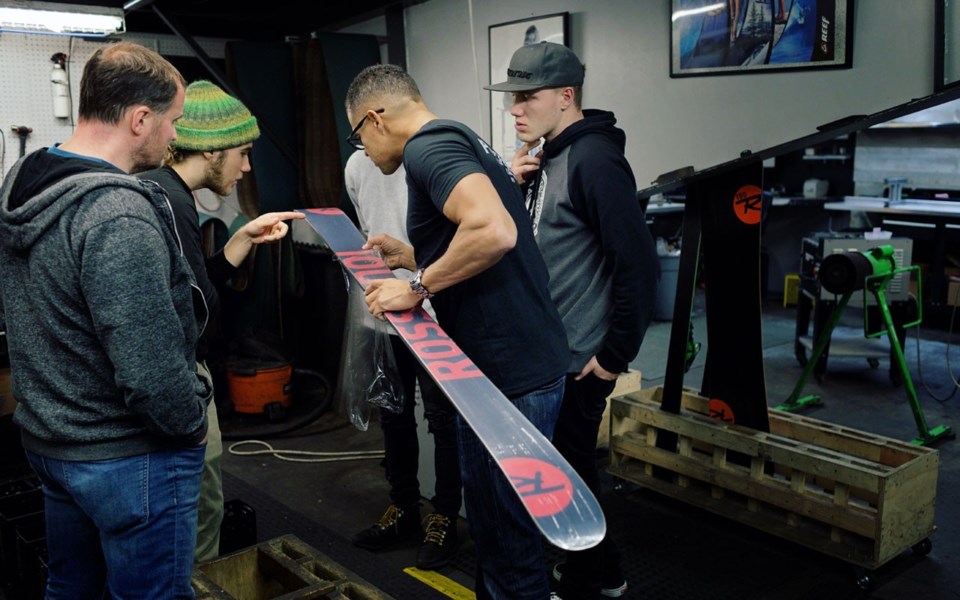Adam Kubis didn't feel himself. He had had enough of his day job as an electrical engineer, fixing complex cranes and dealing with disgruntled customers.
"I felt that my life got too complicated. Too many responsibilities. Too many dos and dont's. I felt I am living the life of someone else," he wrote in a recent blog post.
So, Kubis did what a lot of Whistler transplants do: he started fresh, relocating from his native Slovakia to enrol in the Whistler Adventure School's (WAS) retail manufacturing manager program, which teaches everything from bike mechanics to ski and snowboard production and tuning, from boot fitting to business plan development. It was the first school "where I've enjoyed every class," he said. "It is also the first school where I've learned only subjects I am interested in."
Kubis' experience is similar to many of the students who've discovered WAS. The private, accredited post-secondary school was launched five years ago with the goal of catering to the distinct lifestyle and career demands of Whistler, offering practical education in a number of resort sectors. Its flexible schedule—classes are primarily held in the evenings, and a significant portion of class time is spent in the field—along with its hands-on approach, with students learning from a handful of local experts in their industry, has appealed to those who may have felt the traditional post-secondary path wasn't for them.
"We focus on getting the students out of the classroom," said Shelley Quinn, the school's sales director. "The whole idea is that this is accredited post-secondary education in British Columbia, but it's with a non-traditional approach, so that students are not just sitting staring at computer screens and listening to an instructor."
WAS also appeals to international students, which make up roughly half of the school's 70 students, since it offers both study and work permits through its co-op program. In the past year alone, WAS has made recruiting trips to France, Switzerland, Spain, Andorra and Mexico.
"As my visa to Australia [was] for one year only and I have dreamt to visit Whistler for ages, I found it as a great opportunity to participate in this program, which basically guarantees a visa to Canada, as [a] working holiday is not that easy to get in Slovakia," explained photography graduate Dominika Horníková in an email.
Working directly with local employers, WAS is also a surefire way for businesses to find qualified staff looking to further their careers—something that can be hard to find in the seasonal churn of a resort town, said Ryan Brown of Creekside ski, snowboard and bike shop, Coastal Culture.
"There is something desirable about someone who is already willing to do some extra training and then have them come work for you," said Brown, who has hired three WAS students so far. "It automatically tells you that you have someone who wants to learn more."
In the midst of Whistler's staffing shortage, WAS also provides a much-needed stream of workers, Brown said.
"Last year we really, really struggled finding people. This year we're in a more comfortable position ... [and] one reason we're comfortable is because we've gotten these people who have come," he said. "These people are really committing to the school, they're committed to being here at least a year—most of them are doing two years—so it's helping the local businesses. There's no doubt about it." Along with retail manufacturing management, WAS offers programs in marketing and media management, rock guide training, alpine guide training, ski and snowboard guide training, bike guide training and a design and innovations program. Specific courses within each program can also be taken individually.
"We're definitely open also to locals, or to people who are visiting Whistler and decide that they love the mountain lifestyle and want to stay and learn and be able to make a life here," Quinn noted. To learn more, visit whistleradventureschool.com.




